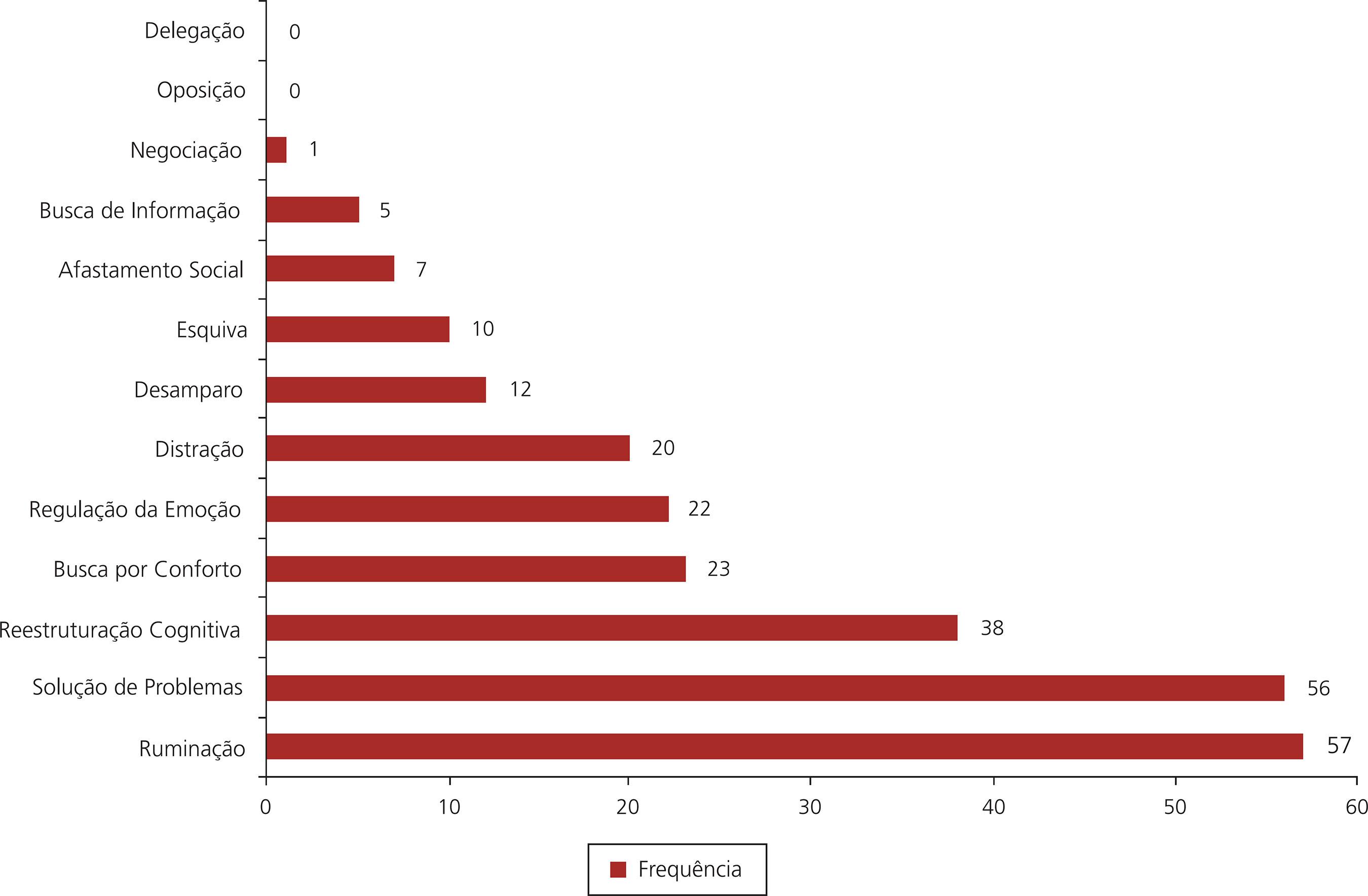Abstract
Pain coping strategies play an important role in adapting to chronic illnesses and their effects. This study analyzed the coping processes of 12 children with sickle cell disease, aged 8 to 10 years, treated at a University Hospital in Vitória, Espírito Santo, using a computerized tool for the assessment of pain coping strategies during hospitalization. The results showed that the most frequent coping strategies were rumination, problem solving and cognitive restructuring. We observed an active search for strategies to solve problems, seeking to divert attention from stressful circumstances to positive thoughts. However, the higher frequency of rumination indicates that children are controlled by negative emotions of the disease, which increases the risk for the development of internalizing disorders. The evaluation of pain coping strategies in this population was based on the Motivational Theory of Coping and its contribution to interventions in the field.
Keywords
Anemia; sickle cell; Coping; Children; Pain


